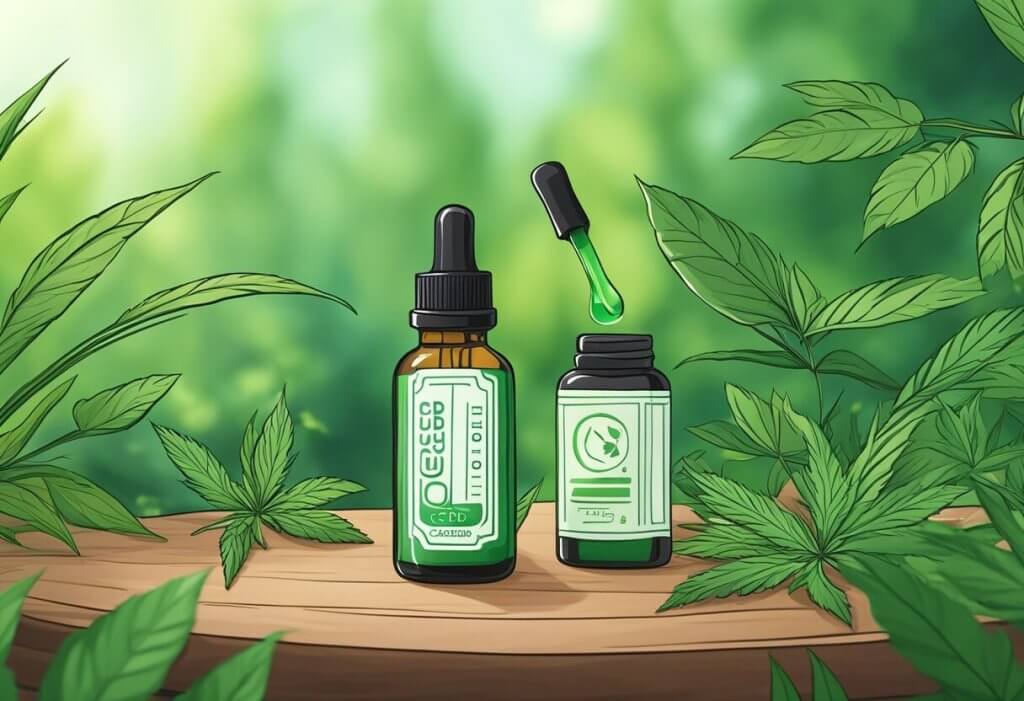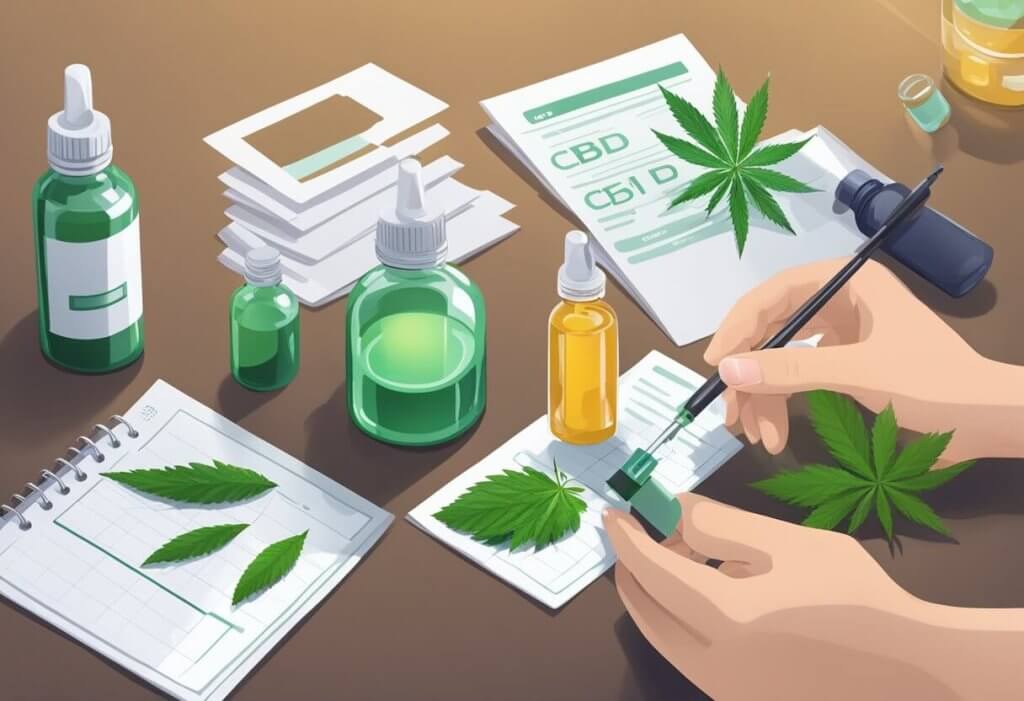Unveiling the Potential Relief
Disclaimer: The anecdotal benefits of CBD mentioned on this website are based on preliminary research and individual user experiences. All information presented here is not meant to substitute for or replace information from health care practitioners. Please click here for our full disclaimer, including side effects, FTC position, etc.
Depression is a prevalent mental health concern affecting millions worldwide, yet many find conventional treatments inadequate or accompanied by undesirable side effects.

If you or a loved one is grappling with depression, you’re not alone in seeking alternative solutions. As more people explore natural approaches to mental well-being, CBD has emerged as a promising option, sparking curiosity about its potential to alleviate depressive symptoms.
While research is ongoing, evidence suggests that CBD’s interaction with the body’s endocannabinoid system may offer neuropsychiatric benefits, providing a glimmer of hope for those seeking relief from the shadows of depression.
In this article, we delve into the science behind CBD and its potential role in supporting emotional balance, offering insights that may illuminate your path toward improved mental health and a brighter tomorrow.
Key Takeaways
- CBD interacts with the endocannabinoid system and may affect mood regulation.
- Research on CBD’s effectiveness for depression suggests potential benefits.
- Legal and practical considerations are critical when evaluating CBD as a treatment.
Understanding CBD and Its Role in Treating Depression

Exploring the potential of CBD as a treatment for depression involves a look at what CBD is, its interactions with the brain, current research, and how it compares with traditional antidepressants.
What Is CBD?
CBD, short for cannabidiol, is a non-psychoactive compound found in cannabis plants. Unlike THC (tetrahydrocannabinol), CBD doesn’t cause a high but is gaining attention for its potential therapeutic benefits, including its use in treating symptoms of depression.
CBD’s Interaction With the Brain
CBD is thought to influence the brain’s receptors and may affect the brain’s serotonin levels, a neurotransmitter closely linked to mood regulation.
Some theories suggest CBD could contribute to an anti-stress effect, which might alleviate some symptoms of depression.
Research on CBD and Depression
Current research on CBD and depression, though still in the early stages, shows promise. Most studies to date are animal studies. However, these suggest that CBD could have a fast-acting antidepressant effect.
Studies like a 2019 review by Psych Central mention that CBD could increase brain-derived neurotrophic factor (BDNF), potentially benefiting those with depression.
CBD vs. Traditional Antidepressants
CBD may offer an alternative approach to traditional prescription medications for depression, with potentially fewer side effects. Since it’s considered fast-acting, some individuals could find it beneficial compared to conventional antidepressants, which often take weeks to display effects.
However, more extensive human studies are needed to fully understand CBD’s efficacy for mental health conditions like depression.
“CBD has shown therapeutic efficacy in a range of animal models of anxiety and stress, reducing both behavioral and physiological (e.g., heart rate) measures of stress and anxiety.”
Dr. Esther Blessing, MD, PhD, Assistant Professor of Psychiatry at New York University School of Medicine.
Practical Considerations for Using CBD

When considering CBD for depression, it’s important to focus on the safety, appropriate selection, and correct usage of products. Understanding possible side effects and navigating the legal landscape are also crucial.
Choosing the Right CBD Products
Selecting quality CBD products is vital for ensuring safety and potential health benefits. Look for items that have been tested by third-party labs and certified by reputable organizations.
CBD oil, tinctures, capsules, gummies, lotions, and creams are available on the market. Each form offers different advantages—oils and tinctures for fast absorption, capsules and gummies for convenience, and lotions and creams for targeted application.
Dosage and Usage
Determining the correct dosage is key but can be challenging as the FDA has not approved CBD as a treatment for depression.
Start with a low dose and consult with a doctor to adjust as needed. They can provide guidance and ensure that use does not result in negative interactions with other supplements or medications.
Potential Side Effects and Interactions
CBD is generally considered safe by the World Health Organization, but users may experience side effects like appetite changes, diarrhea, fatigue, or sexual dysfunction.
Its interaction with enzymes in the liver could lead to increased levels of other medications, mirroring the grapefruit warning. Always consult healthcare providers about potential side effects and interactions.
Legal and Access Considerations
Following the 2018 Farm Bill, CBD’s legal definition in the United States refers to hemp-derived products containing less than 0.3% THC.
While this makes it federally legal, state laws vary greatly. Research local laws to ensure compliance when purchasing CBD products online or in person to avoid legal issues.
Promising Study: A 2018 study published in the journal Frontiers in Immunology found that CBD showed promise as a fast-acting antidepressant. In the study, mice were subjected to a series of stress-inducing tests, and their behavior was analyzed. The researchers found that a single dose of CBD led to measurable antidepressant effects. The authors concluded, “Our findings indicate that CBD may represent a novel fast antidepressant drug, via enhancing both serotonergic and glutamate cortical signaling.”
https://www.frontiersin.org/articles/10.3389/fimmu.2018.02009/full
Frequently Asked Questions
In this section, readers will find commonly asked questions about the use of CBD oil for treating symptoms of depression. These questions cover a range of concerns, from dosage and timing to potential side effects and interactions with other medications.
What’s the ideal dosage of CBD oil for treating depression symptoms?
The ideal dosage of CBD can vary widely depending on the individual’s body weight, chemistry, and the severity of the symptoms. It’s essential to start with a low dose and gradually increase until the desired effects are achieved.
Can you expect immediate relief using CBD for mood enhancement?
CBD oil is not typically associated with immediate relief. Its effects may take several days or weeks to become noticeable. Consistency is key when using CBD oil for mood enhancement.
What are the side effects of using CBD oil for depression?
Some individuals might experience side effects such as drowsiness, dry mouth, or changes in appetite. These side effects are generally considered mild.
How often should someone with depression use CBD oil?
The frequency of CBD oil use should be determined based on individual needs and the advice of a healthcare professional. Some may benefit from daily use, while others may only need it occasionally.
Can CBD oil be used alongside traditional depression medications?
CBD oil can interact with certain medications, including some antidepressants, so it’s important to consult with a healthcare provider before combining CBD with other treatments.
Are there any long-term impacts of using CBD for depression?
The long-term impacts of CBD use are not fully understood. Research is ongoing. People considering CBD for depression should monitor their response and any changes over time.
“I’ve struggled with depression and anxiety for years, and I was hesitant to try CBD at first. But after a few weeks of using a high-quality CBD oil, I noticed a significant improvement in my mood and overall well-being. I felt more balanced, less anxious, and better equipped to handle daily stressors. While CBD isn’t a magic cure-all, it’s become an important tool in my mental health toolkit.”
Jessica, 32, CBD user
